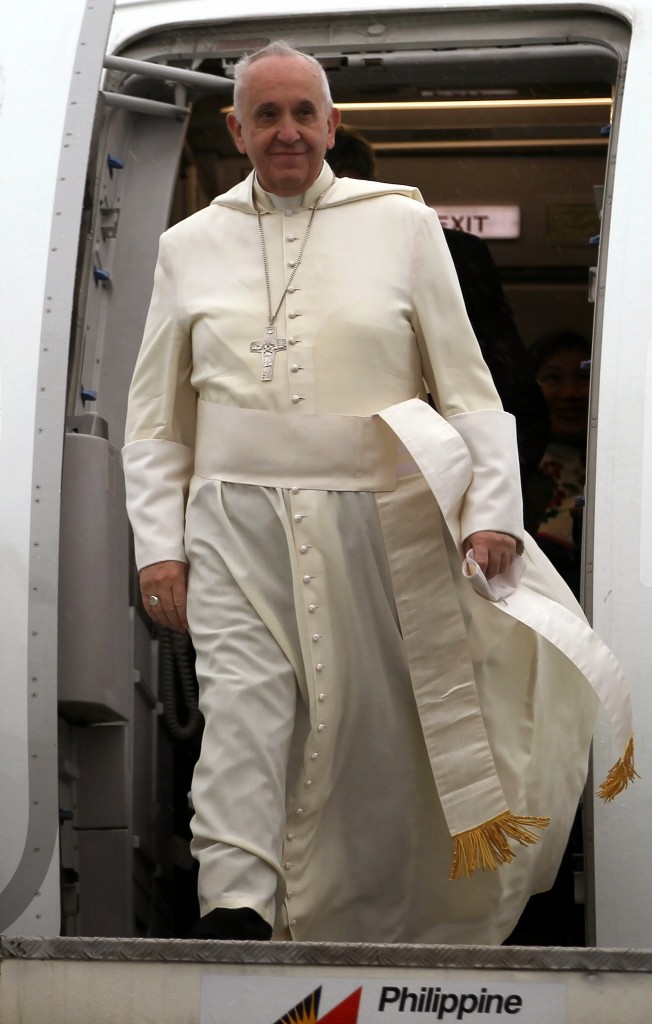The Pope has announced new rules for annulments of Roman Catholic marriages which will streamline the process for those wishing to remarry after divorce while remaining in good standing with the church. According to David Gibson, writing for the Religion News Service,
The Catholic Church does not allow divorce but has long recognized that in some cases a marriage was never valid — if one party, for example, never intended to be faithful or was still married to another person at the time, or if impotence prevented consummation of the marriage or, most commonly, if one or both parties were judged too psychologically immature at the time to understand what they were doing.
Francis has said that half of all marriages in the Buenos Aires, Argentina, archdiocese, which he headed before being elected pope in 2013, were invalid because the husband and wife did not view their vows as a lifelong commitment.
But Gibson questions whether the reforms will make much difference in the US, where 6% of the global Catholic population reside and where nearly half of all annulments take place already.
Some of the steps announced this week were used on a trial basis decades ago by the U.S. bishops, who have also led in efforts to reduce the complexity of the process.
The Rev. John Beal, a leading canon lawyer who teaches at Catholic University of America, said recently that American church tribunals in each diocese have allowed for applicants to submit written affidavits or even use Skype instead of having to appear for every hearing in person.
“We chop off a lot of formalities like taking oaths and other things that give a rough juridical edge to the process,” Beal told the National Catholic Reporter, noting that many other countries have not taken those steps.
That’s one reason why America accounted for nearly half of the nearly 50,000 annulment cases launched each year by church tribunals around the world in 2012. Nearly nine in 10 cases in the U.S. result in an annulment, though that rate is lower in other regions.
That may account for the timing of the judgement, ahead of the Pope’s visit to the US.
“It is a democratizing move focused on easing the course of reintegration into the church for women, in particular,” said Candida Moss, a professor of New Testament and early Christianity at the University of Notre Dame. “His actions are propelled by compassion and pragmatism: He recognizes the dangers of spousal abuse and the reality that many modern marriages are undertaken without full consideration.”
Moss also noted that the timing of the moves is important because they come ahead of Francis’ Sept. 22-27 visit to the U.S., his first. “Francis has set the agenda for these conversations and smoothed the path for his visit later this month,” Moss said. “The messaging is clear: Francis doesn’t want to change church teaching but he doesn’t want to focus on punishing people either.”
For the record, Canon 19 of the Episcopal Church, Of Regulations Respecting Holy Matrimony: Concerning Preservation of Marriage, Dissolution of Marriage, and Remarriage, also offers provision for parties to appeal to the church to recognize a marriage as null:
Sec. 2(a) Any member of this Church whose marriage has been annulled or dissolved by a civil court may apply to the Bishop or Ecclesiastical Authority of the Diocese in which such person is legally or canonically resident for a judgment as to his or her marital status in the eyes of the Church. Such judgment may be a recognition of the nullity, or of the termination of the said marriage; Provided, that no such judgment shall be construed as affecting in any way the legitimacy of children or the civil validity of the former relationship.
It remains to be seen what effect the Pope’s decision will have on American Catholics wishing to end their marriages and remain in the church. The Rev. John Beal, quoted above speaking to the National Catholic Reporter, said in that July interview,
[T]here are a lot of Catholics who simply have decided that the church and its approach to marriage is benighted and doesn’t apply to them, so they just do what they think is best and ignore the discipline of the church.
Read the whole of David Gibson’s analysis for the Religion News Service here.
Photo by Benhur Arcayan (Malacanang Photo Bureau) [Public domain], via Wikimedia Commons

